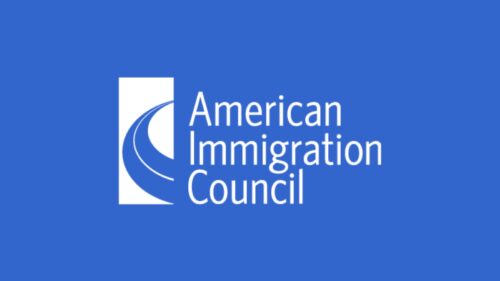WASHINGTON—A new report released today by the American Immigration Council examines major changes to the U.S. immigration system in the wake of the COVID-19 pandemic and the unique challenges the pandemic has created for noncitizens and government agencies. The report, “The Impact of COVID-19 on Noncitizens and Across the U.S. Immigration System,” identifies disruptions throughout the immigration system and makes recommendations for improvements to the federal government’s response.
Over the past several months, the Trump administration imposed immigration and travel restrictions and stringent border controls. Congress passed and is currently considering legislative relief with implications for noncitizens. This report details recent actions and raises important questions about the implications of these measures.
The report draws on the federal government’s policy changes and data to analyze the effect of the coronavirus on immigrants and nonimmigrants abroad, immigration processing at U.S. land borders, immigration detention, and enforcement practices, as well as the congressional response to the pandemic.
The main recommendations of the report include:
- The United States should work to remove the red tape that makes it difficult for many medical professionals to move to the United States and contribute their talents.
- The ban on most new immigrants should be terminated, as it is a thinly veiled attempt to implement drastic changes to our system of family-based immigration and not a genuine attempt to help American workers.
- U.S. Customs and Border Protection should immediately develop plans to administer appropriate screenings at the border for asylum seekers and unaccompanied children, allowing for the safe processing of all individuals in a way that protects the vulnerable, while preventing the spread of the coronavirus.
- U.S. Citizenship and Immigration Services should suspend all filing deadlines and extend all nonimmigrant statuses for at least 90 days beyond the duration of the COVID-19 national emergency. The agency should also administer oath ceremonies online to approved naturalization candidates.
- U.S. Immigration and Customs Enforcement should use its broad authority to release people from detention to the widest extent possible while their immigration court proceedings continue. For those who remain detained, telephonic access to one’s attorneys and family members should be robust.
- ICE should limit enforcement actions that put communities at heightened risk due to COVID-19 and feed the pipeline to immigration detention by implementing meaningful enforcement priorities —such as emphasizing the removal from the United States of people convicted of serious crimes and those who are serious public safety threats.
- The Executive Office for Immigration Review should suspend all in-person immigration court hearings and utilize remote technology until COVID-19 is under control.
- Congress should provide support to mixed status families and take proactive steps to protect immigrants whose status is at risk due to COVID-19.
“The Trump administration has used the COVID-19 outbreak to pursue restrictive policy changes that it has sought to implement for many years,” said Jorge Loweree, policy director at the American Immigration Council. “Many noncitizens across the country are on the front lines helping their fellow Americans fight this pandemic, and immigration is a critical element of our economic recovery. The federal government can and should do better.”
“This report raises important questions about the government’s response to the COVID-19 pandemic and provides information policymakers need to assess the serious implications of delayed actions and the expansion of further restrictions,” said Aaron Reichlin-Melnick, policy counsel at the American Immigration Council. “As Congress weighs additional legislative relief in response to the pandemic and the administration’s requests for a massive immigration enforcement budget, these recommendations should be central to policy discussions about immigration funding, oversight, and reform.”
“Noncitizens have been prevented from reuniting with family members in the United States and obtaining permanent status or U.S. citizenship due to USCIS’ refusal to create avenues for noncitizens to complete certain requirements remotely,” said Ur Jaddou, director of DHS Watch and former chief counsel of U.S. Citizenship and Immigration Services. “The recommendations presented in this report highlight the bureaucratic barriers within our immigration system—issues that could be exacerbated if the government refuses to implement meaningful and informed immigration policies in response to the pandemic.”
###
For more information, contact:
Maria Frausto at the American Immigration Council, [email protected] or 202-507-7526.

